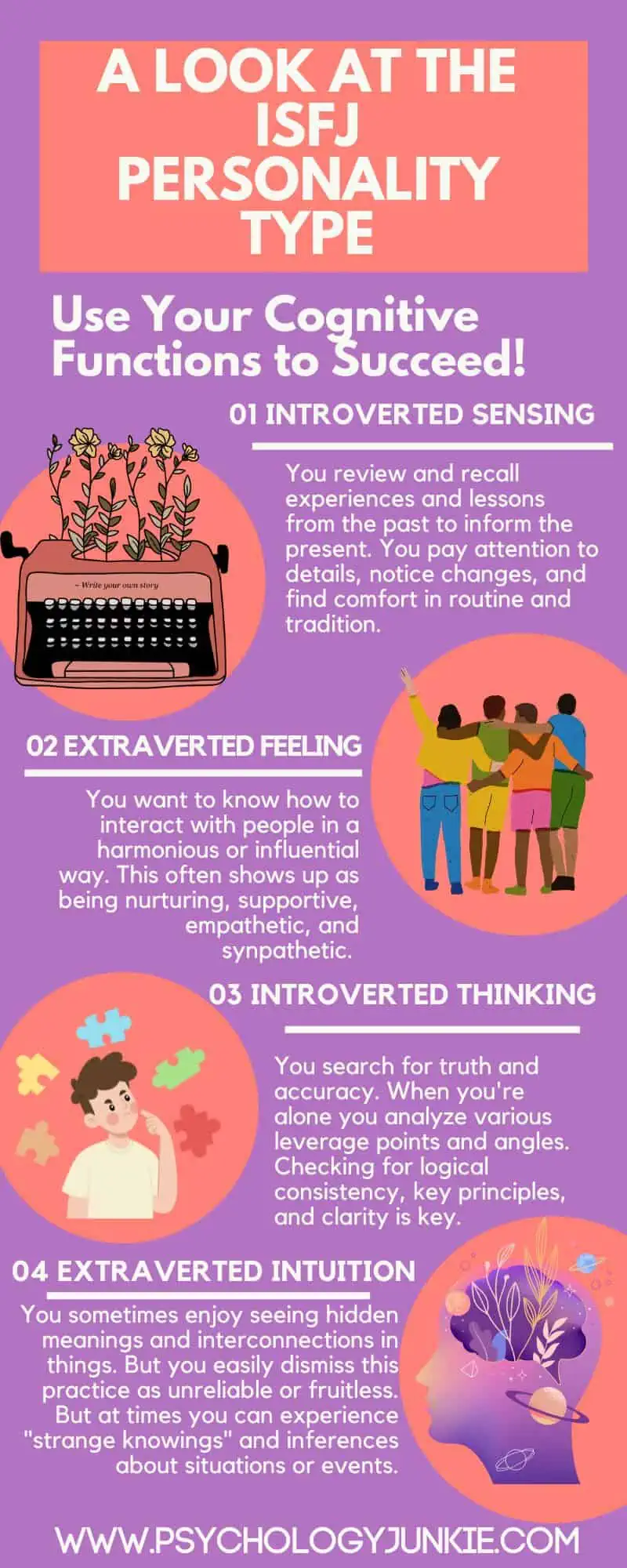Are ISFJs Rare? A Look at the Protector Personality Type
Have you ever wondered how rare or common the ISFJ personality type is? If you’re an ISFJ, you could be thinking that you rarely come across people who share the same personality traits as you. In this article, we’ll explore the frequency of ISFJs and what makes them unique.
Not sure what your personality type is? Take our personality questionnaire here. Or you can take the official Myers-Briggs Type Indicator (MBTI®) here.

Are ISFJs Rare?
According to the latest MBTI® Manual, ISFJs make up 8.4% of the national sample, making them the fourth most common personality type. However, according to Myersbriggs.org, ISFJs make up 13.8% of the national sample, making them the most common personality type. This sample was published in 2001, so it’s difficult to say what the current statistics are.
Whatever the case currently is, ISFJs are fairly common. But that doesn’t mean they lack individuality or uniqueness. Even if ISFJs are, in fact, the most common personality type, you’re still only likely to find one or two ISFJs in a group of ten people (or less, considering they hate crowds). And there are many other factors that add nuance to individuals that lie outside of personality type (like personal preferences, Enneagram type, and more).
Why ISFJs May Feel Rare or Misunderstood
ISFJs are quiet and conscientious types who are known for their sensibility, empathy, and warmth. Their gifts often include supporting others both in practical and emotional ways. Their ability to sense others hurts and step in to console or offer hands-on assistance is deeply valuable to individuals and society as a whole.
However, ISFJs can get so easily caught up in the role of “caregiver” that their own personal needs are put on the backburner. They can get so caught up in taking care of everyone else that their own needs are jettisoned. It can be difficult for ISFJs to ask for help or admit when they need something, so they may feel isolated and unsupported at times. Many ISFJs I’ve spoken with as an MBTI® practitioner are perpetually drained from putting others’ needs before their own.
On top of the natural caregiving qualities of ISFJs, they are also hard working types. While they deeply enjoy relaxation and free time, they also highly value their social responsibilities. It’s common to see them behind the scenes in many industries, taking care of the little things that others often forget about. People can easily downplay or overlook the behind-the-scenes work of an ISFJ because it’s not flashy and because ISFJs usually don’t “toot their own horns.” However, this can mean that they don’t get credit for their hard work, leaving them feeling unappreciated and taken for granted.
Introverted Sensing: The ISFJ’s Dominant Function
Introverted Sensing is a cognitive function that provides an ability to recall specific details and experiences in vivid detail. ISFJs have a profound knowing of the past and very particular impressions of experiences that have special meaning to them. It’s a function that serves as a deep well of knowledge for them, but it can also lead to overthinking and difficulty letting go of past hurts or mistakes. Many times ISFJs replay embarrassing moments or ruminate on what they could have done differently in the past.
However, Introverted Sensing also offers a richness of experience and uniqueness to the ISFJ. An ISFJ can see a flurry of fall leaves and instantly be transported to a time and place in their past. Perhaps they will recall an autumn morning, waiting for the bus to school, munching on a crisp apple and anticipating the smell of freshly-sharpened pencils at their school desk. Having Introverted Sensing as a dominant function can feel a little bit like having a time machine to the past; a transporter that allows the ISFJ to inhabit moments in meaningful image-rich detail.
Introverted Sensing also means that each ISFJ’s impressions are all their own. No two ISFJs have the same impressions of the same things. Carl Jung said of Introverted Sensing, that it “does not so much reproduce the object as spread over it the patina of age-old subjective experience and the shimmer of events still unborn. The bare sense impression develops in-depth, reaching into the past and future.”
For the ISFJ, recalling events isn’t so much a practice in photographic memory. It is more of a practice in remembering the meaning and internal impressions of past events. “How did I feel that fall day ten years ago waiting for the bus?” “What gave me meaning that day?” “What internal sensations (smells/tastes/emotions) were affected?”
Famous ISFJs in History:
Famous ISFJs in history include Jimmy Carter. He was known for his quiet determination, warm-heartedness, and empathy. As the 39th president of the United States, he was a peacemaker and an advocate for human rights.
Mother Teresa, another famous ISFJ, was a tireless advocate for the poor and sick. She made it her life’s mission to provide practical and emotional support for those in need. Her hard work earned her a Nobel Peace Prize.
Rosa Parks played a pivotal role in the civil rights movement by refusing to give up her seat on a Montgomery, Alabama bus. Even though ISFJs are known for being soft-spoken, Rosa showcased how ISFJs can be courageous and daring when standing up for their values.
Conclusion:
While ISFJs may be more common than other personality types, they are still unique individuals with their own perspectives and experiences. They use their personal strengths and sense of duty to make the world a better place, as shown by the examples of famous ISFJs throughout history. So whether you identify as an ISFJ or not, it’s important to remember that everyone brings their own character and individuality to the table.
Find Out More About ISFJs:
24 Signs That You’re an ISFJ, the Protector Personality Type
The Childhood Struggles of ISFJs
References:
MBTI® Manual for the Global Step 1™ and Step II™ Assessments by Isabel Briggs Myers, Naomi Quenk, Mary H. McCaulley, Allen L. Hammer – 4th edition (The Myers-Briggs Company, 2018)









I adore ISFJ!! Because in my subjective perspective they bring nuances in other personality, they’re cognitive movement/action puts such balance. I’m also curious as to how they ended up being quite average. Would they be a symbolism for other people to view the rich quintessence. I came up a philosophy because of that in quite a perpend consideration..” Simple things were are considered abstract..”